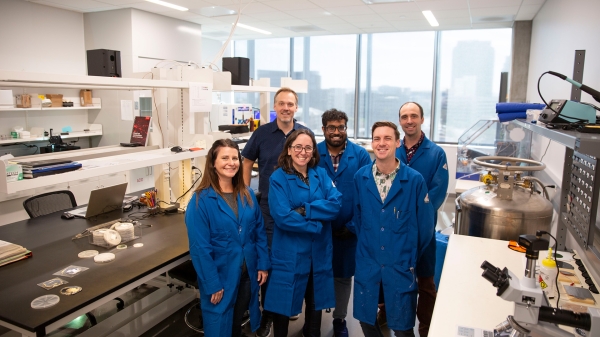How well someone manages their emotions predicts success in school or work, social relationships, mental and physical health, well-being and more.
On Thursday, Oct. 24, the American Psychological Association will recognize one of the pioneers of the study of emotion regulation: Arizona State University’s Nancy Eisenberg, an emeritus and Regents Professor of psychology.
Eisenberg is one of the recipients of the 2024 Distinguished Scientific Contribution Award, which the American Psychological Association gives each year to just a few scientists who have made landmark theoretical or empirical contributions to psychology research. She has made both types of contributions throughout her 40-year career that have had a wide-reaching influence on other scientists and the understanding of emotions.
“The award is a high honor and is an acknowledgement of the many talented people I have worked with,” Eisenberg said.
Ripple effects
When Eisenberg was just getting started in science, there was very little research published on emotion regulation or its effect on how people adapt to their circumstances. There was also not much on prosocial behavior — helping and sharing — or moral reasoning.
“The literature was scant and not very good,” she said.
But in just the past few years alone, there have been thousands of research papers published on these topics. One of the recent papers is a meta-analysis — a research study that combines findings from a lot of studies — that found support for an idea Eisenberg came up with 30 years ago.
The idea was that emotion regulation impacts sympathy, or how we understand others, but not empathy, which is the ability to feel what others feel. This difference arises because perceiving what someone else feels or experiences can take over our own emotions.
“You often have to be able to control your emotional arousal to be able to focus on another rather than the self,” she said. “At the time, there was almost no data to support this idea, and it was based only on logic.”
The meta-analysis examined 58 studies and over 25,000 participants, and found that emotion regulation affected sympathy more than it did empathy.
But Eisenberg’s contributions to psychology go far beyond the pages of academic journals. She said she is very proud of the relationships she formed with colleagues and scientists she mentored. One of these relationships contributed to the meta-analysis that confirmed Eisenberg’s research decades later. The senior author of that study, Tina Malti, now a professor of psychology in Leipzig, Germany, is a scientist because of Eisenberg. She read Eisenberg’s research as an undergraduate, which led to her wanting to study empathy, and after the two met at a conference, Eisenberg became Malti’s mentor.
Though she is now retired from ASU, Eisenberg continues to influence the field of psychology. She endowed a speaker series in the Department of Psychology, getting the idea after being invited to a speaker series at the University of North Carolina Greensboro in the 1990s.
“Symposiums are important for younger faculty and graduate students to learn about others’ work and form connections that often carry over afterward,” she said.
The awards ceremony will be broadcast online and can be watched on the YouTube channel of the American Psychological Association and American Psychological Foundation.
More Science and technology

Training stellar students to secure semiconductors
In the wetlands of King’s Bay, Georgia, the sail of a nuclear-powered Trident II Submarine laden with sophisticated computer equipment juts out of the marshy waters. In a medical center, a cardiac…

ASU startup Crystal Sonic wins Natcast pitch competition
Crystal Sonic, an Arizona State University startup, won first place and $25,000 at the 2024 Natcast Startup Pitch Competition at the National Semiconductor Technology Center Symposium, or NSTC…

Celebrating '20 Years of Discovery' at ASU’s Biodesign Institute
Editor’s note:The Biodesign Institute at Arizona State University continues to celebrate its landmark 20th anniversary with this fifth installment in its "20 Years of Discovery" series. Each…
